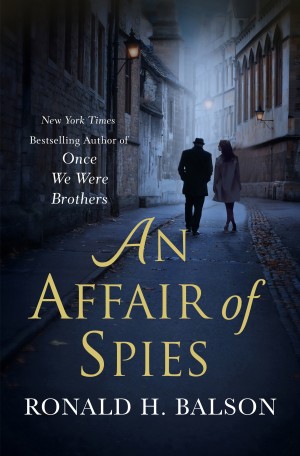Dr. B., Daniel Birnbaum’s fictionalization of his family’s escape and repatriation during World War II, takes place in 1939 Stockholm — a city not usually recognized as a site where German Jewish exiles sought refuge. A well-known curator of modern art, Birnbaum invokes mid-twentieth-century Stockholm itself: a “city,” in the words of the narrator, “in which Europe’s future might be decided.” As Birnbaum writes in an essay for the Jewish Book Council, Dr. B.“is a story full of shadows, reflections, and ambiguities.” The city of Stockholm, rendered in umbras and whispers, emerges as perhaps the richest character in the novel.
Under Birnbaum’s deft hand, Stockholm becomes a fraught zone for Jews seeking an “escape route” from Nazi terror. It also looms as a city uncannily haunted by Jewish memory. This is especially the case for Immanuel Birnbaum, the “Dr. B.” of the title. He is the narrator’s biological grandfather, a Germany-based journalist who is “openly critical of Hitler.” In order to evade the Nazis and earn a living, Immanuel converts to Lutheranism with his family. They eventually find safe passage to neutral Sweden, a haven for Jews choosing ethnic invisibility over the murderous antisemitism of their homelands.
We later learn that Immanuel’s father (the author’s great-grandfather) was a renowned cantor and composer of Jewish liturgical music in nineteenth-century Konisberg. A product of the Jewish Enlightenment, Immanuel’s father fiercely opposed the enthusiastic piety of Hasidism, a mode of Judaism that challenged his own traditionalist system of Jewish belief and practice. As grandson and great-grandson of such larger-than-life relatives, Birnbaum is tangled up in a complex genealogy that reflects familiar aspects of modern Jewish history.
The core plot of Dr. B. involves a true, if relatively obscure, story of espionage and attempted sabotage by foreign actors in Sweden during World War II. Threats to his family force Immanuel to become a go-between in an incendiary plot to stop the flow of Swedish iron — the key to maintaining the Nazis’ war machine and their so-called “Achilles heel.”
In the end, Immanuel’s fragile wife Lucia survives an interrogation by the Swedish police, but Immanuel himself is caught, tried for espionage, and sentenced to prison for a brief period. In the final pages of Dr. B., an imprisoned Immanuel hears his father’s soulful cantorial music ringing in the local church bells through his prison cell’s windows. The repressed melodies of Jewish music return, soothing Immanuel’s troubled, displaced soul. “His father’s music filled him,” the narrator writes, “and he followed the jolting dance in his head.”
In an afterword, Birnbaum speaks of his grandfather as “the center of a labyrinth of astonishing interconnections and exposed to fiercely hostile powers.” In the end, Dr. B. reveals that, for the cohort of Jewish refugees in a supposedly “neutral” Stockholm, the affecting sounds of Jewish soul music provide a kind of salve, a mode of salvation. In this sense, Dr. B. represents both a loving gesture of generational rededication and a rich rendering of the power of Jewish memory.
Donald Weber writes about Jewish American literature and popular culture. He divides his time between Brooklyn and Mohegan Lake, NY.





